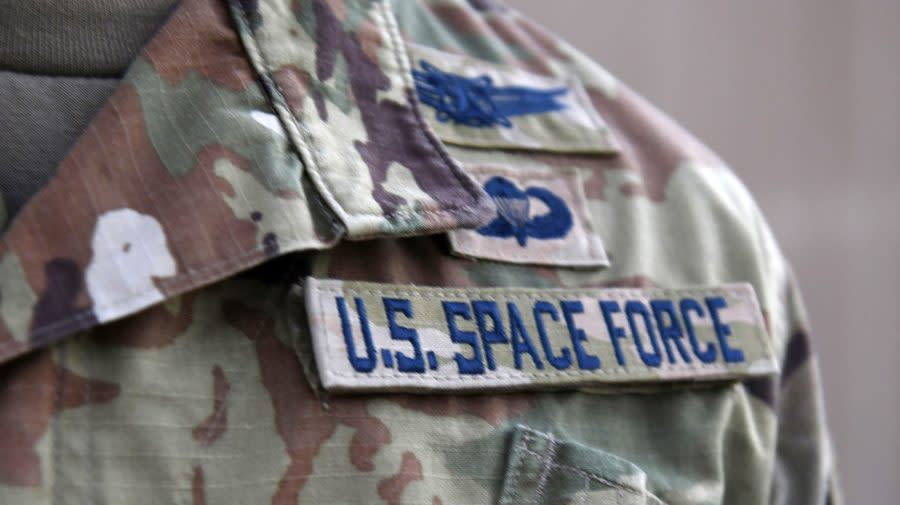Air Force, Space Force to make ‘sweeping’ changes to force posture

The Air Force announced a major overhaul of its force posture Monday, planning to make “sweeping” changes to reshape the military branch and the Space Force to ensure the U.S. can meet a challenging new era of security threats across the globe.
In a press release, the Air Force referred to the modernization efforts as “one of the most extensive recalibrations in recent history for the Air Force and Space Force,” announcing 24 initiatives to reach the ambitious goals.
Air Force Secretary Frank Kendall urged swift action on the proposals across the military branches.
“We need these changes now,” he said in a statement. “We are out of time to re-optimize our forces to meet the strategic challenges in a time of great power competition.”
The Air Force said it would focus on a few key areas that include strengthening readiness, training and combat command centers for program and mission development.
The biggest news is the development of a new command center, which will oversee specific areas of the military branch, called the Integrated Capabilities Command.
The new command center will be in charge of new investments and operational concepts and it will free up other command centers to focus on daily operations rather than future planning, according to the Air Force Times.
The Space Force will also get a new field command, called the Space Futures Command, responsible for experimentation, wargaming and mission planning.
Another major effort includes the expanded training programs under the Air Education and Training Command (AETC), which will be officially re-designated to Airman Development Command (ADC).
The renewed focus aims to center on accelerating training and gives the ADC the ability to develop airmen throughout their whole service, streamlining their training when they move around the force.
Lt. Gen. Brian Robinson, commander of the AETC, said the revamped training is the most significant change since the 1990s and added it will help with “building organizational efficiencies across the Air Force.”
He explained it will “streamline institutional force development responsibilities under one command, significantly improving the Air Force’s ability to produce and retain mission ready Airmen for competition and conflict.”
“The Airmen and Guardians we are developing right now will decide the outcome of this great power competition, and if necessary, the next fight,” Robinson said in a statement. “There is no time to lose.”
The changes additionally put Air Force Cyber directly under U.S. Cyber Command, one of 11 unified combat command centers under the entire U.S. military.
Top stories from The Hill
Here are the Senate Republicans who voted for the Ukraine package
Supreme Court to confront 14th Amendment disqualification — and not just Trump’s
Schumer rejects Speaker Johnson’s call to add border reform to Ukraine bill
The Air Force will also create new offices and jobs to assist with nuclear weapons, electronic warfare and resourcing; conduct large-scale exercises to train for operations; and restructure weapons systems to be more data-driven, while bolstering deployment of combat aircraft and other assets, according to the release.
Other small changes include expanding technical tracks for officers; redesigning career paths for the Space Force’s Guardians to meet high-tech demands; and reintroducing warrant officers, or service members with technical specialities, who had previously left the Air Force, to assist with information technology and cyber operations.
While the changes are ambitious, Air Force Chief of Staff Gen. David Allvin said “the Air Force has a rich history of successfully reckoning with transformational change” since its inception in 1947.”
“Today, a new key inflection point is upon us,” he said in a letter to the entire Air Force. “We cannot afford to be complacent, holding on to outdated structures,” he said. “The Air Force built for the previous era is no longer optimized for the current strategic landscape.”
For the latest news, weather, sports, and streaming video, head to The Hill.


